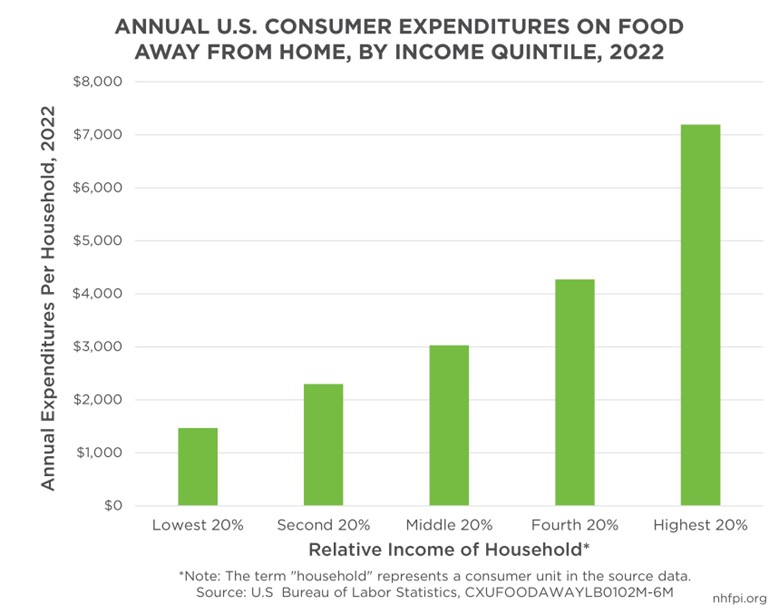Consumer expenditures on food away from home, which is separate from groceries to be prepared and used at home, are higher for households with higher incomes. National data indicate the amount of this type of spending was nearly five times higher for the top 20 percent of households than for the bottom 20 percent by income, and 2.4 times that of the middle 20 percent of income-earners. A reduction in New Hampshire’s Meals and Rentals Tax rate would likely disproportionately pass on benefits to upper-income households, as well as tourists renting hotel rooms and automobiles in the state that are taxed by the Meals and Rentals Tax.

